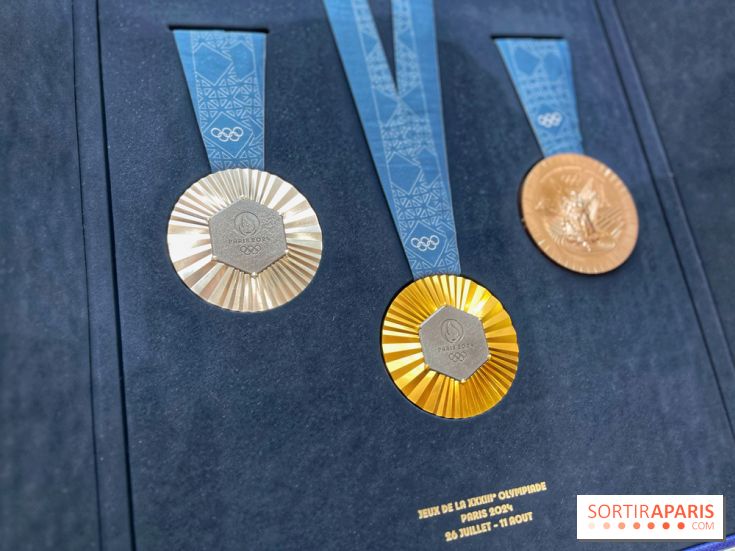While the Paris 2024 Olympic Games will be held in France from July 26 to August 11, the weightlifting events will take place over five days, from August 7 to 11, 2024 at theArena Paris Sud, located at Porte de Versailles. Female athletes will compete in the 49kg, 59kg, 71kg, 81kg and over 81kg categories; male athletes in the 61kg, 73kg, 89kg, 102kg and over 102kg categories.
In each of these weight categories, 12 weightlifters compete in two types of event: the snatch and the clean and jerk, with three trials for each. In all, 10 Olympic titles will be awarded to the athletes!
In the meantime, (re)discover thehistory ofweightlifting, learn the rules of this sport for big knuckleheads and reminisce about records and great sporting moments in the history of weightlifting.
Weightlifting has ancient roots dating back to antiquity. The earliest traces of weight-lifting competitions can be found in the Greek and Egyptian civilizations, where strong men demonstrated and compared their strength with each other by lifting heavy stones. However, modern weightlifting emerged in the 19th century as an international sport, notably in Germany, Austria, France and England, where the first competition was held in 1887.
Weightlifting made its Olympic debut at the 1896 Summer Games in Athens, with two events on the program: the one-armed lift and the two-armed lift. The one-arm events disappeared from the competition in 1924, replaced by three two-arm movements: the bench press, the snatch and the clean and jerk.
The bench press also disappeared from competitions in 1972 due to the dangerous nature of the movements, leaving only the snatch technique (the athlete lifts the bar from the ground to overhead in a single continuous movement) and the clean and jerk (the athlete lifts the bar in two stages, first raising it and placing it on the front of his shoulders, before projecting it overhead). It wasn't until the 2000 Summer Olympics in Sydney, however, that women entered Olympic competition!
Over the decades, weightlifting has continued to evolve, adopting weight categories - now 5 for men and 5 for women - and specific techniques. It remains one of the most demanding disciplines at the Olympic Games, testing athletes' power, technique and concentration.
Weightlifters compete in specific weight categories, with the aim of lifting the maximum weight relative to their own body weight. The total weights lifted in the snatch and clean and jerk determine the athlete's final ranking in his or her weight category. Each athlete has three attempts to complete each movement, and the weight of the bar is progressively increased after each successful attempt.
Three judges assess each attempt for compliance with the rules, in particular the weightlifter's correct final position with the bar. Penalties can be imposed for non-compliance with the rules, such as incorrect movements or poor technical execution.
At the dawn of the 20th century, European countries dominated the world of weightlifting, in particularGermany, Austria and France. In the 1950s, the Soviets took center stage, followed by China, Turkey, Greece and Iran a few decades later, in the 1990s.
Weightlifting at the Olympic Games has produced some memorable moments and outstanding performances throughout its history. Among the most famous moments and standout medals is that of Turkey's Naim Süleymanoğlu at the 1988 Seoul Olympics, who won an epic gold medal in the featherweight category, becoming the first man to lift three times his body weight in the clean and jerk.
Other examples include the performance of three-time Greek Olympic champion Pyrros Dimas at the Atlanta Games in 1996, Iranian Hossein Rezazadeh at the Sidney Games in 2000 and Athens in 2004 in the super-heavyweight category, and more recently North Korea's Rim Jong-sim during the London and Rio Games in 2012 and 2016 respectively.
French weightlifter Romain Imadouchène, 29 years old on the counter and World Champion in the clean and jerk in 2022, is one of France's greatest medal chances in this discipline, at the Paris 2024 Games!
Paris 2024 Olympics: what channel & what time to watch the weightlifting events on TV?
Don't want to miss the 2024 Olympic Weightlifting events on TV? Here's the broadcast schedule for the Olympics, the channels and times to watch the various matches to follow. [Read more]







 Paris 2024 Olympics: what channel & what time to watch the weightlifting events on TV?
Paris 2024 Olympics: what channel & what time to watch the weightlifting events on TV?














